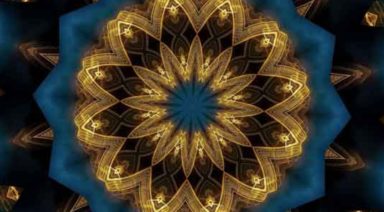Yoga for a Broken Heart

I have spent the past two years using yoga alongside therapy to heal my emotional wounds. Suffering from pelvic pain, my asana practice revealed to me that my physical pain was a manifestation of my emotional pain. Once I released that, my pain subsided and I was able to cancel an impending surgery. I have seen numerous times in my practice and in my teaching that pain in the heart and the body can be helped or healed through yoga. Through my healing journey, my teaching has evolved to a more heart-centered approach; one that focuses on the connection between the mind, body, and heart and the belief that they are constantly striving toward wholeness.
Here are a few of the techniques that I’ve used in my own life and teaching.
- Use affirmations with Sun Salutations
Bathe your body in the truth of who you are. Each inhale say “I am”, each exhale say the affirmation (silently or aloud). Do one Sun Salutation per affirmation below.
- Imagine red light at the base of the pelvis and say the words I AM SAFE
- Orange at low abdomen, I AM CONFIDENT
- Yellow at upper abdomen, I AM POWERFUL
- Bright green at heart center, I AM LOVING
- Pale blue at base of throat, I AM TRUTHFUL
- Deep blue between eyebrows, I AM WISE
- Violet above the head, I AM WHOLE
- White in the space slightly higher above the head, I AM FREE
- Soak in the effects of washing your body and mind in truth
- Talk to Your Pain
When you feel physical pain, silently ask the pain what it is trying to tell you. Give it a chance to speak – tell it you’re listening. Sometimes it helps to practice asana, journal, draw, or go for a walk during this process.
- Ground the feet down and open the heart up
Use standing and balance poses to help you feel grounded and present. Practice chest openers to help you keep your heart open. Interlace your fingers at your back, hug your shoulder blades and elbows together, reach the knuckles toward the floor, and lift the sternum and side ribs up. Do this as often as possible to help you keep your heart open to life and joy.
- Keep your heart soft
Pain can cause you to close up. To help you stay open, place your right middle finger on your heart center and gently and slowly massage. In that spot, imagine a beautiful ray of light breaking through the clouds. Choose a quality of love that resonates for you, and imagine that quality shining brightly. Any time you need to remember this place of love and peace deep within you, put the right middle finger there gently.
Brokenness and pain are part of being alive. Owning that pain and dropping into it is how we begin to heal.
What to Do When You’re Not on Your Mat
Gaia’s The Yogi’s Heart series can help you open and heal your heart.
Purifying Through Fire: Creating a Fire Ceremony

The ancient Vedic culture, from which yoga is derived, has a long-standing tradition of rituals designed to pay homage to and communicate with the divine. In a Puja ceremony, one makes simple offerings in gratitude for the blessings they have received and to return a piece of these gifts back to spirit. In a Yajna, the ritual is more extensive. Here Brahman or Vedic priests communicate with specific aspects of the divine through the messenger Agni, the fire God. Yajnas, as prescribed in the Vedas, follow a specific template which include intention, offerings, and specific mantras to be recited. The following article describes the basic tenants of Yajna and Puja to provide a template for practitioners to create their own fire ceremony of purification and transformation.
1. Begin in Fullness
A central tenant in yoga is the notion of “purnam” or wholeness. All that exists arises from wholeness and is in itself whole. It is essential in our communion with spirit to understand that we are not separate from and seeking union; instead we are unified and remembering.
Purnam exists throughout the entire life cycle; from the blessing of a newborn baby to the cremation grounds of Varanassi, the wholeness of life is acknowledged through its entirety. As an individual soul, or atman, we go through a journey of transformation as our life unravels to reveal new layers of understanding. Regardless of one’s disposition, place in life, failures or successes, each individual is of “purnam” and as such, divinely whole. The practice of purification serves to dissolve the illusion of separation and bring the aspirant back into their knowing of wholeness.
Application
As you prepare your body and mind for fire ceremony, do so from the intrinsic understanding that you are whole exactly as you are. Bring your whole self forward. Allow all parts of you, from the beautiful to unseemly, to open to the direction and guidance of spirit.





































